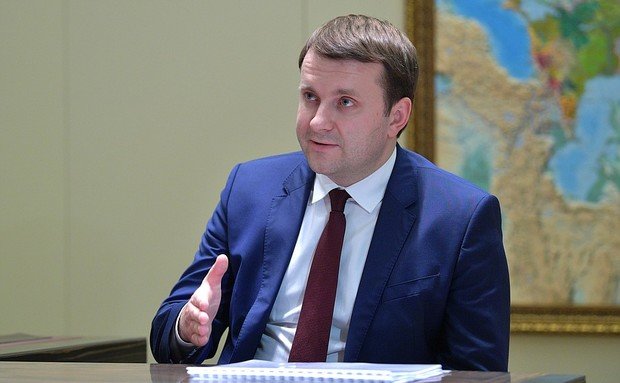Growing oil prices outweigh sanctions' negative effects on Russian economy
Despite an expected expansion of U.S. sanctions, the Russian stock market continued rising last week inspired by high oil prices. At the moment, inflation is low, economic forecasts are positive and consumer spending is gaining momentum. Nonetheless, it is too early to speak about a steady and strong recovery, warns the country's economic development minister.
Rising global oil prices, which hit a three-year peak above $70 a barrel last week, are brightening Russia's once gloomy outlook, says The New York Times. The price recovery is so far outweighing any adverse effects of the threat of new U.S. sanctions on the Russian economy. According to Vladimir Osakovskiy, Bank of America Merrill Lynch's chief economist in Moscow, sanctions are important for the market and for debt and equity investors, but oil is far more significant for GDP and the life of ordinary Russians.
For oil-dependent countries, high oil prices often turn to be a curse. The government is less likely to stimulate growth in non-natural resource sectors, so other industries can hardly compete globally. In Russia, periods of low oil prices have been traditionally associated with market liberalisation, while high prices have correlated with tightening the country's internal and foreign policy. However, this correlation seems to be broken down, as the Russian foreign policy remains tough despite the three-year plunge in oil prices.
On Thursday, American senators proposed to expand the sanction blacklist with the inclusion of Russia's Prosecutor General Yuri Chaika and business magnate Alisher Usmanov. However, this news didn't depress the local stock market as it was inspired by rising oil prices.

Western sanctions made cheap loans unavailable to many Russian companies, says Aleksandr Abramov, a professor at the Russian Presidential Academy of National Economy and Public Administration. ''But that is a midterm problem. In the short term, the rising oil prices are a factor for growth.'' The situation is already encouraging: consumer spending is picking up, and inflation reduced to once unimaginable 2%. As for economic growth, Goldman Sachs predicts that it will reach 3,3% in 2018. The forecast is well above the government's own estimates, and Russia's Minister of Economic Development Maksim Oreshkin even warned that there was ''no basis for such optimism'' at the Gaidar Forum in Moscow last week.
The New York Times assumes that the oil price rise and an ensuing budget surplus make an extension of Russia's retirement age, which is meant to be announced after the presidential election in March, less likely. For now, it is expected that the retirement age both for men and for women will rise to 65 years from current 55 for women and 60 for men.